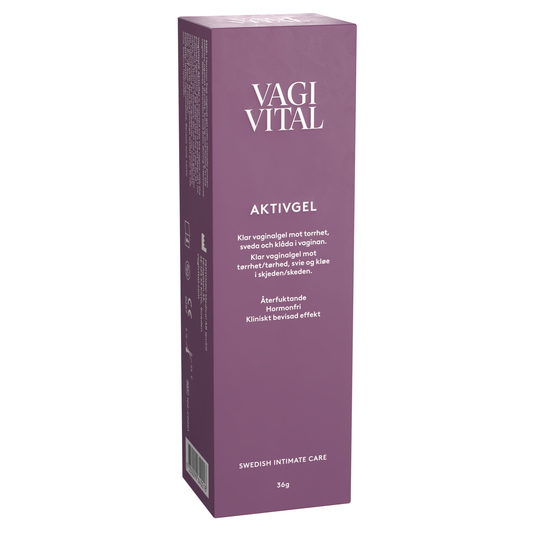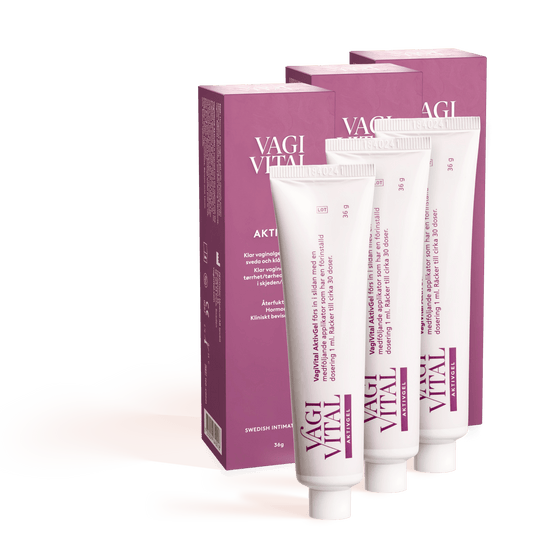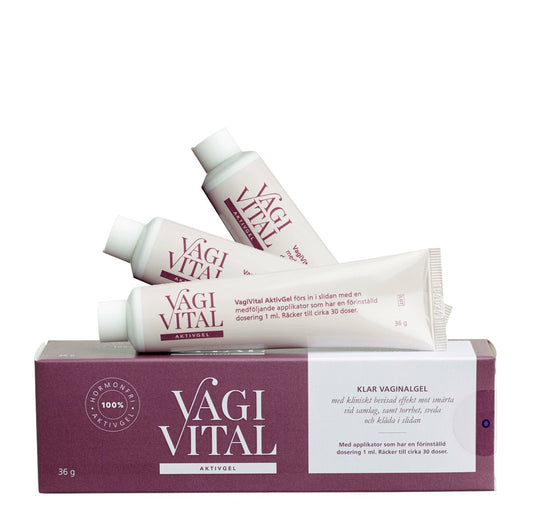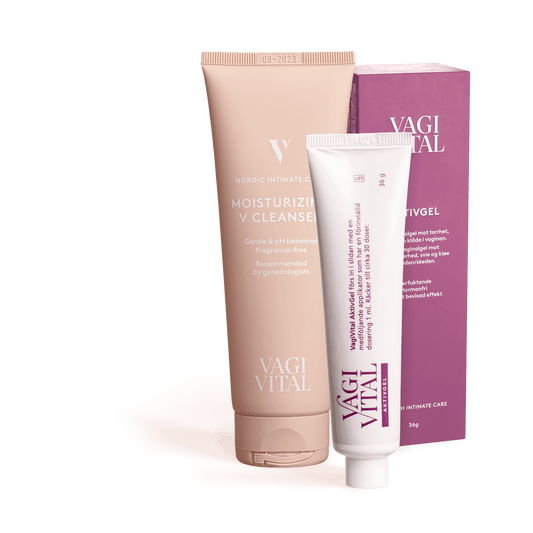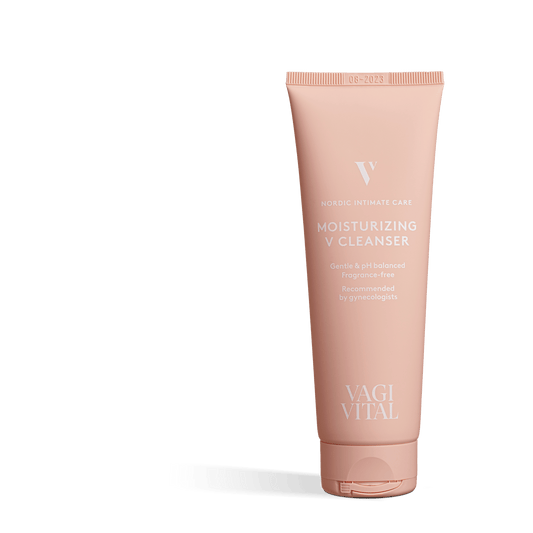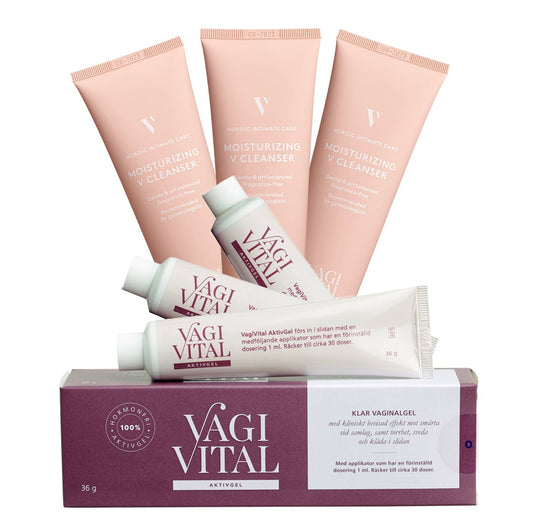If men had a uterus, they would have bragged about it
The uterus, or uterus as it is also called, is one of the most fascinating organs in the female body. If men had a uterus, they would probably brag about its incredible functions and adaptability 😊. But for women, the uterus is often a silent hero, playing a central role in both reproductive health and overall well-being.
THE UTERUS: A MUSCULAR MASTER
The uterus is a muscular organ that in its resting state weighs only about 70 grams. But during pregnancy, it undergoes a remarkable transformation. At the end of a pregnancy, the uterus can weigh up to 2.2 kg, which is an increase of more than 30 times its original weight. This is due to the rapid growth of both muscle and connective tissue that supports and protects the growing fetus.

Buy VagiVital AL for amniotic fluid leakage here:
THE UTERINE MUSCULATURE: A SIMPLE EXPLANATION
The uterus is made up of three layers, each with its own important functions:
- Endometrium – The inner layer that renews every month during the menstrual cycle. This layer builds up to receive a fertilized egg and is shed if no pregnancy occurs, which is menstruation.
- Myometrium – The middle layer consists of smooth muscle and is the strongest and most powerful. This is the layer that contracts during childbirth during labor to help deliver the baby.
- Perimetrium – The outermost layer acts as a protective membrane for the entire uterus.
CHANGES OF THE UTERUS THROUGHOUT LIFE
Throughout a woman's life, the muscles of the uterus go through several phases:
🌸 During menstruation: The myometrium helps remove the thickened endometrium, leading to menstrual bleeding.
🌸 During pregnancy: The muscles of the uterus stretch and adapt to accommodate the growing fetus. The uterus becomes significantly larger and heavier.
🌸 During childbirth: The myometrium performs some of the most powerful and coordinated muscle contractions in the body to help the baby be born.
HORMONES AND THE UTERUS
The functions of the uterus are controlled by a finely tuned orchestra of hormones. Estrogen and progesterone are the main hormones that regulate the menstrual cycle and prepare the uterus for a possible pregnancy. During pregnancy, the levels of these hormones increase, promoting the growth and change of the uterine tissues.
After menopause, estrogen production decreases, causing the uterine tissues to become thinner and less elastic. This can cause symptoms such as dry mucous membranes, which affects many women's quality of life.
VagiVital AktivGel is a hormone-free gel that moisturizes the driest mucous membranes. We receive many questions about how to use the gel, so here is a little reminder about the importance of initially using the gel every day for 3 months, which corresponds to 3 tubes.

Buy a 3-pack of Aktiv Gel and get 10% off here:
RESEARCH AND PROGRESS
Research on the uterus and its functions continues to make progress. Studies have shown that the uterus is not only a place for fetal development but also plays an important role in a woman's overall health. For example, researchers have discovered that the uterus has its own immune system, which helps protect against infections and inflammation.
Another fascinating aspect is that the womb can affect the brain and central nervous system through hormonal signals. This helps explain why the menstrual cycle and pregnancy can have such profound effects on a woman's mood and behavior.

Read the blog PMS or Perimenopause: How to tell them apart here:
WOMB SURGERIES: A NECESSARY CHOICE
There are women who need to have their womb (hysterectomy) or ovaries (oophorectomy) removed for various medical reasons. These procedures may be necessary in cases such as uterine cancer, heavy bleeding, endometriosis, or chronic pain.
Although it can feel like a major change and be an emotionally challenging experience, these surgeries can lead to improved quality of life and freedom from pain and discomfort. But making the decision about such surgery is often difficult and can be associated with much worry and fear.
DOES VAGIVITAL MENOPAUSE SELF-TEST WORK AFTER HYSTERECTOMY?
Yes, VagiVital Menopause Self-test works even if you have had a hysterectomy (removal of the womb) but still have your ovaries. Here is why:
🌸 Continued hormone production
If your ovaries remain, they continue to produce estrogen and progesterone until menopause. Even though menstruation stops because there is no longer a womb where menstrual blood can collect and be expelled, hormone production continues as usual.
🌸 Total hysterectomy
If the ovaries are removed during surgery, hormone production almost completely stops, leading to immediate menopause.
🌸 How the test works
VagiVital Menopause Self-test measures the level of FSH (follicle-stimulating hormone). When estrogen levels drop during perimenopause and menopause, the body produces more FSH in an attempt to stimulate the ovaries to produce more estrogen. Elevated FSH levels are an indicator that you are approaching menopause. So, even if you have had a hysterectomy but still have your ovaries, the test will give you reliable results.

Read more & buy VagiVital Menopause self-test here:
We have all once come into the world after spending our first months in a womb. The womb is truly an incredible organ that deserves to be celebrated for its many functions and adaptability. But we must also acknowledge that women without a womb naturally have the same strength and power. Whether a woman has a womb or not, her value, strength, and potential are infinite❤️.
Take care of yourself & Stay Pussytive ❤️
/Fanny Falkman Grinndal
Business Manager Nordics
Peptonic Medical AB
fanny.falkman-grinndal@peptonicmedical.se
Recommended products for you
- Choosing a selection results in a full page refresh.
- Opens in a new window.

